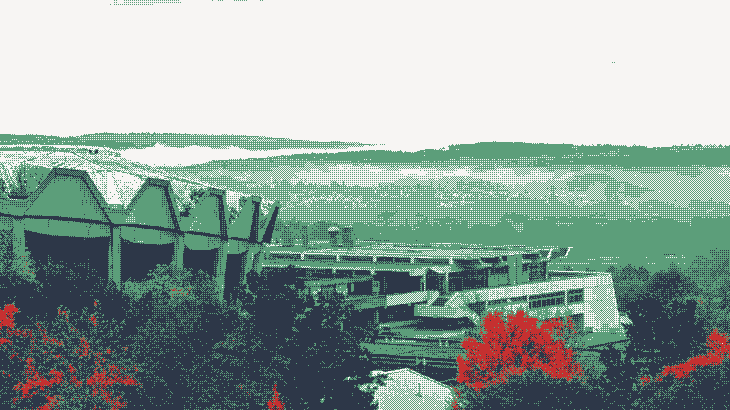
We invite you to immerse yourself in the theme Before Ruins and explore its evocative potential for science and technology studies in worlds coming to an end. And in new ones beginning. The Ruhr Valley situates Before Ruins in its extractivist past. It invites you to stand before ruins that have not yet completely deteriorated; before moments that we can still shape and that are being shaped by various actors from whom we can learn.
Save the date: 25-27 March 2026, Ruhr-University Bochum.
Before ruins is a state of the situated body, turned around from lingering in afterthoughts, attending to post-industrialism, post-humanism, post-ANT, after progress, after critique and other followings. Thus turned, we face a damaged and broken world. Infrastructures cracking, assemblages crumbling into ruins, disturbed connections, dried out or flooded landscapes.
Standing before ruins we must wonder what’s next, what to expect, to anticipate and predict, speculate the unforeseeable and surprising, what may be formed, flourish and come along. We see the catastrophes looming, and assemblages dissolving. Acting through capitalist ruins may evoke neurosis, hectic planning and seeking of solutions, authority, control and technical fixes, warfare, and domination. Catastrophic times may paralyse and generate neglect and ignorance. It is times of polarisation, hate, and perplexity.
Yet, standing before ruins you may also hold your breath. It is the moment of the potential, the virtual, the possible: What now? Go ahead? Break down? Gather up? Before the ruins is now. It is an occasion of solastalgia, to reach out to touch, it pulls ahead, enables to act, to notice, to think, to care, to hope, to attend, respond, and change what is dawning. To come together.
Standing before ruins requires action and offers a trope to make STS response-able, to acknowledge the other and our own situated contributions to the world, a world in ruins before us. It is time to laugh, to enjoy, to celebrate what we have, what we are. Together. While standing before the ruins pulls towards the upcoming, it also folds time and juxtaposes the imminent with what was before.
How was life before the ruins? How was renewable energy before fossil fuels? How did we use to live with floods? Before Ruins introduces a temporal vertigo, it encourages STS to pull what was before ruins into the moment of being before ruins. What is STS, not after progress, but before de-growth, not post-human but before multi-species? When we stand before ruins as STS scholars, what are we facing? What do we do? We must not solve or fix the coming of ends, but practice ways to endure, to shape conviviality and togetherness.